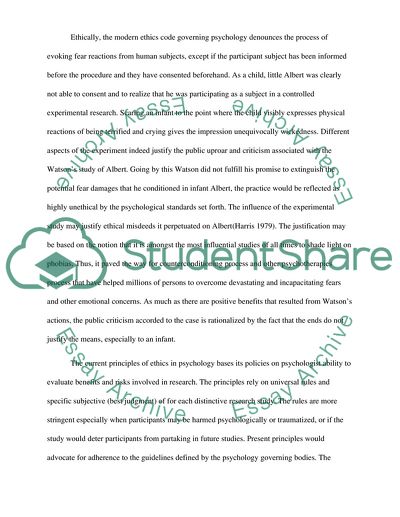Cite this document
(“Modern Perspectives on John Watson and Classical Behaviorism Coursework”, n.d.)
Retrieved de https://studentshare.org/psychology/1693035-examine-the-historical-and-ethically-controversial-case-of-little-albert
Retrieved de https://studentshare.org/psychology/1693035-examine-the-historical-and-ethically-controversial-case-of-little-albert
(Modern Perspectives on John Watson and Classical Behaviorism Coursework)
https://studentshare.org/psychology/1693035-examine-the-historical-and-ethically-controversial-case-of-little-albert.
https://studentshare.org/psychology/1693035-examine-the-historical-and-ethically-controversial-case-of-little-albert.
“Modern Perspectives on John Watson and Classical Behaviorism Coursework”, n.d. https://studentshare.org/psychology/1693035-examine-the-historical-and-ethically-controversial-case-of-little-albert.


